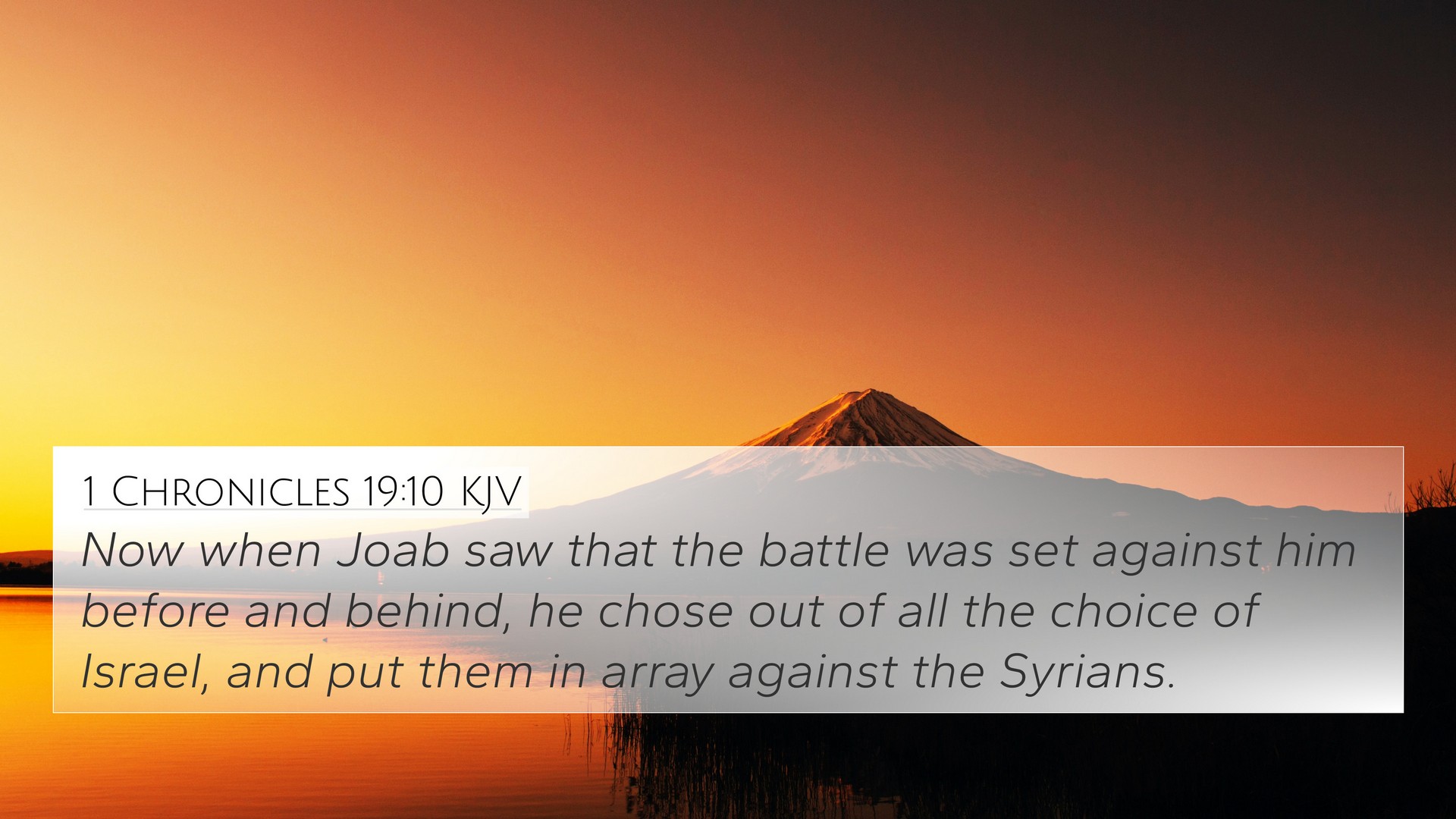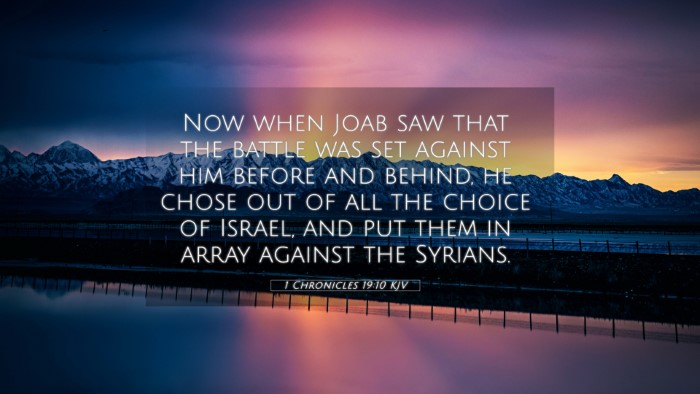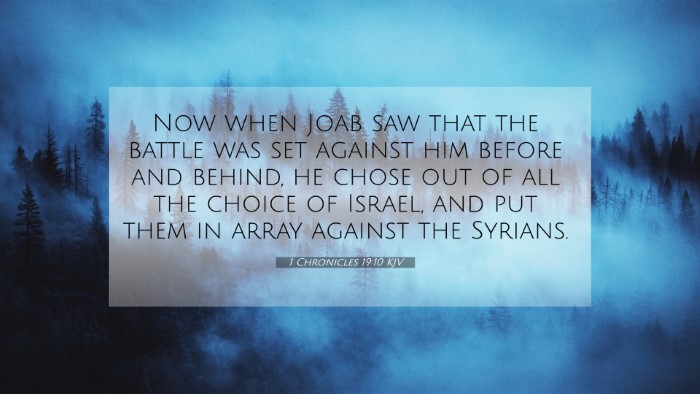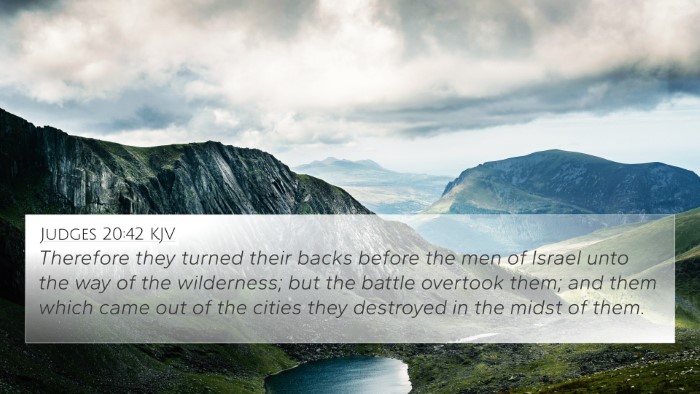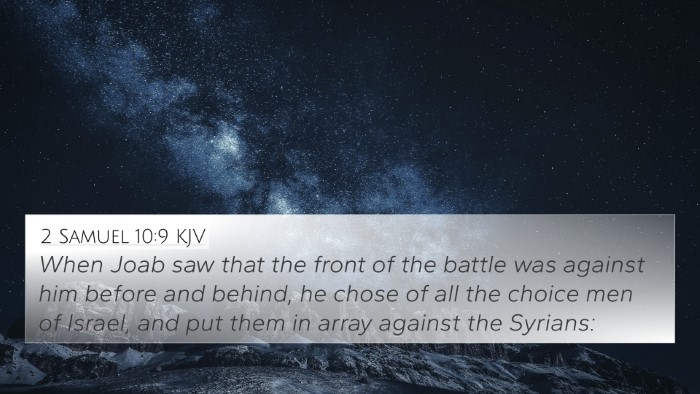1 Chronicles 19:10 - Biblical Analysis and Commentary
The verse from 1 Chronicles 19:10 states: "But the princes of the children of Ammon said to Hanun, Their lord has sent to comfort you. Has not David rather sent his servants to you to search the city, and to spy it out, and to overthrow it?" This verse illustrates a critical moment in the narrative of David's dealings with the Ammonites, showcasing themes of suspicion and misinterpretation. Below is an analysis combining insights from renowned public domain commentaries.
Context of the Verse
This passage occurs within a broader narrative where King David seeks to extend kindness to Hanun, the new Ammonite king, due to the death of his father, Nahash. However, the princes of Ammon misconstrue David's intentions, leading to conflict. This reflects a recurring theme in scripture where misunderstanding leads to strife.
Insights from Public Domain Commentaries
-
Matthew Henry:
Henry emphasizes the importance of context in understanding interactions. He notes that the Ammonite princes assumed David's intentions were malevolent rather than benevolent. This misunderstanding could be a profound lesson on how preconceived notions can distort reality and lead to conflict.
-
Albert Barnes:
Barnes provides a detailed analysis of the political landscape, stating that the Ammonite leaders, motivated by fear and distrust, unjustly accused David. His commentary highlights how fear can drive leaders to misinterpret actions, reflecting human weaknesses and the propensity for conflict.
-
Adam Clarke:
Clarke points out that the spies sent by David were intended to offer comfort, yet they are perceived as adversaries. He underscores the irony in the situation—intentions of peace are easily manipulated into instruments of war, exemplifying the fragility of human relationships.
Thematic Connections
This verse illustrates multiple themes present throughout the Bible, including:
-
Misunderstanding and Conflict:
The verse exemplifies how misunderstandings can escalate tensions, a theme reflected in various Biblical narratives, including the story of Jacob and Esau (Genesis 27).
-
Diplomacy and Reconciliation:
David's intent to comfort reminds readers of the call for reconciliation found in Matthew 5:9 - "Blessed are the peacemakers." This connection emphasizes the necessity of clarity in leadership and relationships.
-
Political Intrigue:
The political dynamics at play mirror instances such as in 2 Samuel 10, where David sends ambassadors that leads to a war due to misinterpretation by the Ammonite leaders.
Cross-References
This verse has multiple cross-references that highlight its relevance and thematic resonance. Here are some notable connections:
- 2 Samuel 10:1-5: Initial kindness turns to warfare.
- Proverbs 18:13: "He that answereth a matter before he heareth it, it is folly and shame unto him."
- Psalm 41:9: Betrayal by close friends, mirroring Ammonite betrayal.
- Matthew 7:1: "Judge not, that ye be not judged," relating to their quick assumptions.
- James 1:19: Encouragement to be quick to listen and slow to speak.
- John 7:24: "Judge not according to the appearance, but judge righteous judgment."
- Philippians 4:8: Encouragement to think on things that are true, honest, and just—opposite to how the Ammonites perceived David's intentions.
Conclusion
In summary, 1 Chronicles 19:10 serves as a poignant reminder of the complexities of human interaction and the importance of understanding intentions. As seen through the insights of Matthew Henry, Albert Barnes, and Adam Clarke, this verse illustrates how easily misunderstandings can escalate into conflict while also underscoring the importance of peace and reconciliation. Furthermore, the connections drawn and the references listed facilitate a deeper understanding of the themes presented in this scripture.
